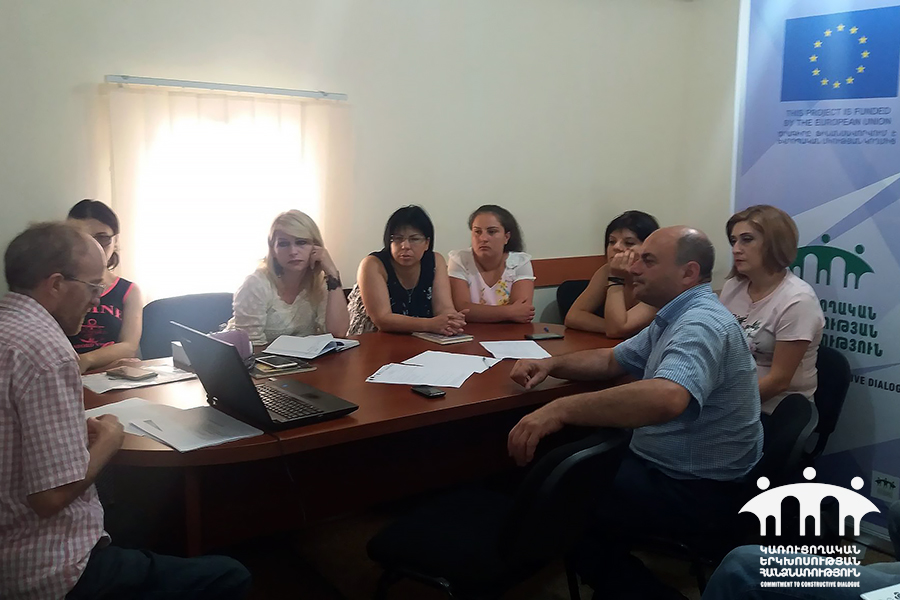
In the scope of the “Commitment to Constructive Dialogue” project funded by the European Union today, on July 12th, Mr. Carl Ulbricht, the International Expert of the “Commitment to Constructive Dialogue” Project, delivered a lecture on “EU-Armenia Comprehensive and Enhanced Partnership Agreement (CEPA), sectors, structures, civil society participation, as well as the fundraising by CSOs from the European Union” in Vanadzor.
Mr. Ulbricht presented the lecture materials in two parts. At first, he spoke about the EU-Armenia Comprehensive and Enhanced Partnership Agreement (CEPA), its main sectors and principles. Also, he discussed with the participants the issue of civil society scheme formation in detail. Then, the expert presented to the participants the main EU funding sources and the avenues of benefitting from them. He also touched opon the documents necessary for CSOs to participate in calls funded by the European Union.
12 out of 13 CSOs from the Vanadzor incubator (both 1st and 2nd stages) participated in the event.
The “Commitment to Constructive Dialogue” project is implemented with the financial support of the European Union by a consortium of civil society organizations, which are the “Armenian Lawyers’ Association” NGO, Agora Central Europe o.p.s (an NGO from the Czech Republic), the “Armenian Center for Democratic Education-CIVITAS” NGO, the “International Center for Human Development” Public Organization, the “SME Cooperation Association” NGO and the Union of Communities of Armenia.
The overall objective of the project is to enhance the influence of CSOs and their coalitions on the public policy process. This will enable the organisations (those that already work in target coalitions) to gain new resources, unite civil society experts and encourage their participation in the formation of local and national policy agenda, identify common issues and priorities and go to the government with constructive and strategic policy initiatives.
In the scope of the project sub-grants are/will be allocated to CSOs and CSO coalitions. They will be targeted at public policy development and will have tangible results in the 9 project target sectors: justice, human rights, public finance management, business, education, social sector: social inclusion of children with disabilities, agriculture, economy, energy.


